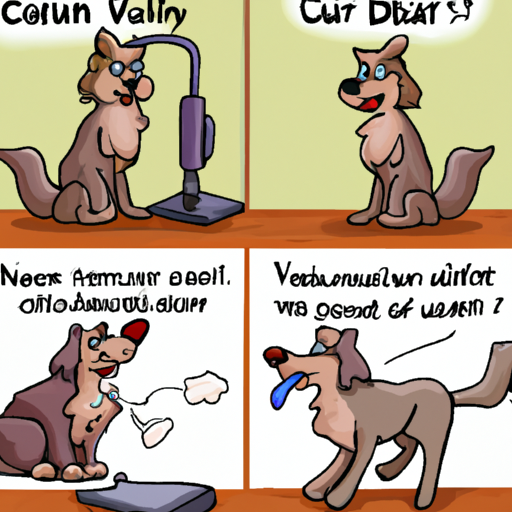Hello dear caregivers, today we are going to delve into a topic that is of paramount importance to you and your furry friend – reactivity in dogs.
Understanding Reactivity in Dogs
Reactivity in dogs is a common behavior issue characterized by excessive responses to certain stimuli. It’s like the canine equivalent of a human having an ‘over-the-top’ reaction to something relatively small or benign.
You’ve probably seen it in action: a calm, serene walk in the park suddenly goes south when your pup spots another dog. In an instant, they are lunging, barking, and seemingly out of control. This is reactivity at play.
Common Triggers of Reactivity in Dogs
Reactivity can be triggered by a number of factors. Here are a few common ones:
- Other animals
- Strangers or unfamiliar people
- Novel environments
- Certain noises or sounds
Being aware of these triggers can help you predict and, ultimately, manage your dog’s reactivity.
The Impact of Reactivity on Your Dog’s Life
Reactivity can greatly impact your dog’s quality of life. It can limit their socialization opportunities, strain their relationships with other dogs and people, and even affect their overall health and wellbeing. It’s not just about managing your dog’s behavior—it’s about improving their life.
How to Manage Your Dog’s Reactivity
Managing your dog’s reactivity is not about punishment. Instead, it’s about understanding and addressing the underlying cause of their behavior. Here are a few strategies:
- Desensitization: Gradually exposing your dog to their triggers at a distance or intensity that doesn’t cause a reaction.
- Counter-conditioning: Changing your dog’s emotional response to their triggers.
- Positive Reinforcement: Rewarding your dog for calm behavior in the presence of their triggers.
| Strategy | Description |
|---|---|
| Desensitization | Gradual exposure to triggers |
| Counter-conditioning | Changing emotional response |
| Positive Reinforcement | Rewarding calm behavior |
Frequently Asked Questions
Q: What breeds are more prone to reactivity?
A: Reactivity can occur in any breed. It’s more about individual temperament and experiences.
Q: Can reactivity be cured?
A: While it may not be ‘cured’, it can certainly be managed with the right strategies and patience.
Q: Should I avoid taking my reactive dog to the park?
A: Not necessarily. It’s about finding a balance and knowing your dog’s thresholds.
Remember, as a caregiver, your understanding and patience can make a world of difference in managing your dog’s reactivity. With time, consistency, and a lot of love, your reactive dog can learn to navigate their world in a more relaxed and enjoyable way.



